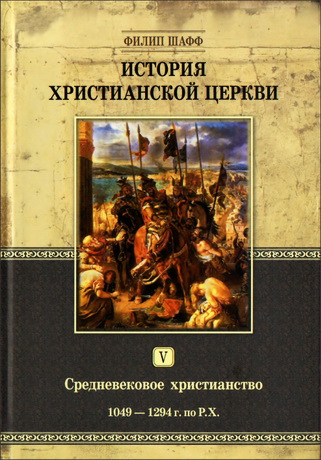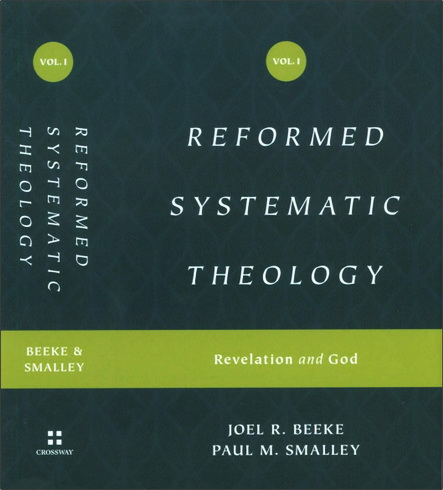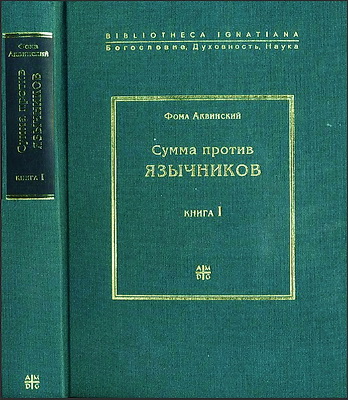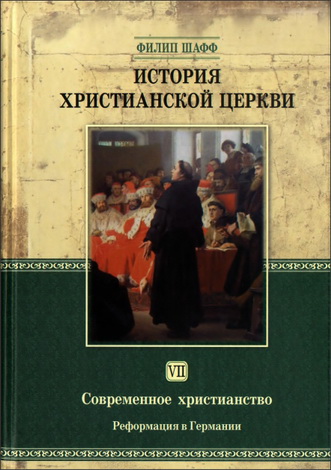
Beeke, Smalley - Reformed systematic theology - 1
This systematic theology explores the classic teachings of the Reformed Christian faith from a perspective that is biblical, doctrinal, experiential, and practical. Today's churches need theology that engages the head, heart, and hands. Too often, we have compartmentalized these aspects of life (as if we could cut ourselves into pieces). The result has been academics for the sake of academics, spiritual experience without roots deep in God's Word, and superficial pragmatism that chases after the will-o'-the-wisp of short-term results. The church has suffered from this fragmented approach to the Christian faith. However, we have learned from the Reformers, the British Puritans, and the Dutch Further Reformation divines an approach to Christianity that combines thoughtful exegesis of the Holy Scriptures, rich exploration of classic Augustinian and Reformed theology, an experiential tone that brings truth into the heart, and practical applications for life.
We have pitched our writing at a level suitable for a variety of readers: beginning students preparing for gospel ministry; pastors, elders, and teachers in the church who desire to grow in their understanding of the Bible; and other people who possess the basic tools of careful reading and thinking necessary to study theology. While we discuss very deep subjects, our treatment is not technical but accessible.
Joel R. Beeke, Paul M. Smalley - Reformed systematic theology - vol. 1: Revelation and God
CROSSWAY, Wheaton, Illinois, 2019 - 1309 pp.
ISBN: 978-1-4335-5983-9
Joel R. Beeke, Paul M. Smalley - Reformed systematic theology - vol. 1: Revelation and God - Contents
Annotation
Abbreviations
Tables
Preface
PART 1: PROLEGOMENA: INTRODUCTION TO THEOLOGY AND THE DOCTRINE OF REVELATION
Analytical Outline: Prolegomena
Section A: Introduction to Theology
1 What Is Theology? Part 1 : An Academic Discipline
2 What Is Theology? Part 2: A Spiritual Discipline
3 Who Does Theology? Where? When?
4 Which Theology Do We Do? Part 1 : Christian, Catholic, Evangelical
5 Which Theology Do We Do? Part 2: Reformed: Historical, Confessional, Theological, and Hermeneutical Perspectives
6 Which Theology Do We Do? Part 3 : Reformed: Polemical and Experiential Perspectives
7 Why Do We Do Theology?
8 How Do We Do Theology? Part 1 : Spiritual Dynamics
9 How Do We Do Theology? Part 2: Academic Methods
Section B: The Doctrine of Revelation
10 Theological Fundamentals of Divine Revelation
11 General Revelation, Part 1 : Biblical Teaching
12 General Revelation, Part 2: Philosophy and Science
13 General Revelation, Part 3 : Natural Theology and Theistic Arguments
Excursus: Some Historical Perspective on Natural Theology and Theistic Proofs
14 Special Revelation: Biblical Teaching
15 Errors Regarding Special Revelation, Part 1 : Romanism and Liberalism
16 Errors Regarding Special Revelation, Part 2: Liberalism's Offspring
17 The Bible a s the Word of God
18 The Properties of the Written Word, Part 1 : Authority and Clarity
19 The Properties o f the Written Word, Part 2: Necessity, Unity, and Efficacy
20 The Properties of the Written Word, Part 3: Inerrant Veracity
21 The Properties of the Written Word, Part 4: Objections to lnerrancy
22 The Properties of the Written Word, Part 5: Sufficiency
23 The Cessation of Special Revelation, Part 1 : Charismatic Continuationism
24 The Cessation of Special Revelation, Part 2: Prophecy Today
25 Applied Revelation for Practical Fruit
PART 2: THEOLOGY PROPER: THE DOCTRINE OF GOD
Analytical Outline: Theology Proper
Section A: The Doctrine of God's Triune Glory
26 Introduction: The True Knowledge of God
27 Introduction to God's Nature and Attributes, Part 1 : Biblical Teaching
28 Introduction to God's Nature and Attributes, Part 2: Theological Issues
29 The Name of "the LORD " ( YHWH)
30 The Holiness of the Lord
31 Gods That Are Not God
32 God's Spirituality
33 God's Simplicity: "The LORD Our God Is One Lord"
34 God's Infinity, Part 1 : Incomprehensibility, Aseity and Immensity
35 God's Infinity, Part 2: Eternity: Infinity with Respect to Time
Excursus: Problems of Time and Eternity
36 God's Immutability, Part 1: Biblical Teaching
37 God's Immutability, Part 2: Theological Issues
38 God's Knowledge, Part 1 : Omniscience and Wisdom
39 God's Knowledge, Part 2: Foreknowledge
40 God's Sovereignty: An Introduction to Omnipotence
41 God's Moral Excellence, Part 1: Goodness and Love
42 God's Moral Excellence, Part 2: Truth and Righteousness
43 God's Moral Excellence, Part 3: Jealousy, Impassibility, and Joy
44 God's Moral Excellence, Part 4: Wrath and Compassion
45 The Trinity, Part 1: Biblical Teaching
46 The Trinity, Part 2: Historical Development
47 The Trinity, Part 3: Theological and Practical Considerations
Section B: The Doctrine of God's Sovereign Purpose
48 The Decree of God: General Considerations
49 Predestination, Part 1: Election and Reprobation
50 Predestination, Part 2: Historical Development through Reformed Orthodoxy
51 Predestination, Part 3 : Questions and Uses
52 God's Providence, Part 1: Biblical Teaching
53 God's Providence, Part 2: Problems and Applications
Section C: The Doctrine of Angels and Demons
54 The Holy Angels of God
55 Satan and the Demons
Bibliography
General Index
Scripture Index
Joel R. Beeke, Paul M. Smalley - Reformed systematic theology - vol. 1: Revelation and God - The Holiness of the Lord
When Moses approached the burning bush, the Lord commanded him to come no closer, "for the place whereon thou standest is holy ground" (Ex. 3:5). Moses stood on holy ground because he was in the presence of the holy God. This is the first reference to God's holiness in the Bible. Moses responded with reverent fear (v. 6). God then revealed his name, "the Lord," to his prophet (vv. 13-15). Though Exodus does not say anything more about God's holiness until several chapters later, God was clearly communicating to his servant and us that the great "I Am" is the Holy One.
God's holiness and name converge again in Moses's song of praise to the Lord for his salvation (Ex. 15:11). We encounter them together again in God's summary statement regarding his purpose for the tabernacle, when God thrice declared that he would "sanctify" (make holy) the tabernacle by means of his glory dwelling there: "They shall know that I am the Lord their God, that brought them forth out of the land of Egypt, that I may dwell among them: I am the Lord their God" (29:43-46). God intertwined the revelation of his holiness with his covenant name.
Therefore, our study of God's name in the previous chapter leads us to meditate upon his holiness. Where, when, and to whom God reveals himself as "the Lord," his presence sets apart that particular space, time, or people as holy. He calls his people to holiness by declaring, "I am the Lord" and "I am holy" (Lev. 11:44-45). His people, and especially their priests, must not profane his "holy name," for "I am the Lord" (20:7-8; 22:2-3, 32). In Isaiah's prophecy, God's declarations that "I am the Lord" go hand in hand with revelations of God as "the Holy One of Israel" (Isa. 43:3,15; 48:17). In some psalms, "holy name" and "the Lord" are paralleled in such a manner as to be synonymous (Pss. 103:1; 105:3; 145:21). Revelation 4:8 combines Isaiah's vision of divine holiness (Isaiah 6) with Moses's revelation of the great "I Am" (Exodus 3), for it says, "Holy, holy, holy, Lord God Almighty, which was, and is, and is to come." Therefore, we will next consider the holiness of God.
It is appropriate that, having studied God's name, we begin our study of God's attributes with his holiness. Throughout the Bible, God's name and holiness have "central significance," as Herman Hoeksema (1886-1965) noted. Holiness is the only attribute of God emphasized with the triple repetition "Holy, holy, holy," and that twice in the Bible (Isa. 6:3; Rev. 4:8). As we will see, God's holiness functions in the Bible as a major way of describing or qualifying all the other divine attributes. John Howe (1630-1705) said that holiness "is an attribute of attributes," so that we may think of God's "holy power, holy truth, holy love," for it is "the very lustre and glory of his other perfections."
The Meaning of Holiness
The English language has two distinct roots for the idea of holiness— "holy" (related to the German heilig) and "sanctified" (from the Latin sanctus)—but there is one word group for holiness and sanctification in biblical Hebrew (qadosh). The same is true for Greek (hagios). That which is holy or sacred stands apart, or else has been set apart or separated from all that is common, ordinary, profane, or unclean in human experience (Lev. 10:10; 11:44). The foundation of the doctrine of God's holiness is laid in the Old Testament. The Psalms speak of God as the "Holy One of Israel" (Pss. 71:22; 78:41; 89:18), and this title is especially favored by Isaiah.
Although Christians tend to identify God's holiness with his moral purity, the biblical sense of holiness is broader. John Gill noted, "It has been thought to be not so much a particular and distinct attribute of itself, as the lustre, glory, and harmony of all the rest; and this is what is called 'the beauty of the Lord' (Ps. 27:4)." The holy is opposed to the unclean, but it is also distinguished from the common. To be holy is to be clean, but even more, to be sacred, set apart from the ordinary and considered as standing in the realm of the divine. Samuel Willard said, "Holiness in the largest sense may serve to set God forth absolutely perfect in his being; and so it comprehends all the attributes under it," but it may be considered particularly as "it respects the divine purity."
Geerhardus Vos explained how holiness encompasses both ontological supremacy and moral purity: "The root QDSH originally means, 'to be set apart,' 'to be separated.' God is therefore called, 'the Holy One,' because He exists in Himself and nothing can be compared to Him. The metaphysical gap that exists between Him and the creature is therefore expressed by the concept of holiness." Since God is absolutely supreme, "in His dealings with His creatures He claims everything for Himself and makes it subservient to His purposes." Therefore, Vos said, we may also describe God's holiness "as that attribute of God by which He seeks and loves Himself as the highest good and demands as reasonable goodness from the creature to be consecrated to Him."





Комментарии
Пока нет комментариев. Будьте первым!